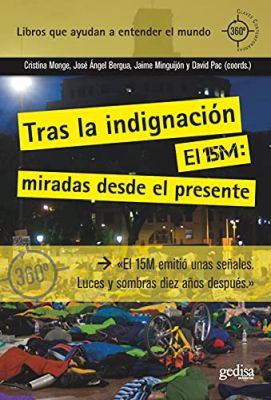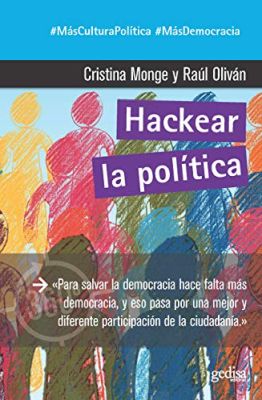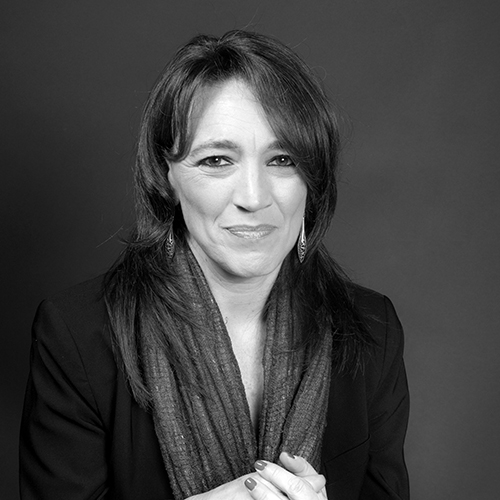Our crisis of democracy
- Dossier
- Oct 22
- 12 mins
The beginning of the 21st century presents us with challenges that force democracies to improve. New challenges, both global and those specific of each area, such as Southern Europe, call for more and better democracy. Achieving a global vision without homogenising, managing complexity and developing a new multi-stakeholder governance are some of the measures that will have to be broached.
The idea of crisis is inherent to democracy itself; it has been palpable throughout the ages. Each generation has its own and considers it to be the most significant. This provides a framework for continuous improvement, in which to constantly question what is wrong with democracies and how it can be addressed. Let’s consider it then to be an opportunity.
In these lines we will endeavour to delineate the crisis of democracy that we have experienced in Southern Europe in the first decades of the 21st century. It is a matter of understanding our problems, with some elements that are unique to us and others that are shared with crises in other times or latitudes within a global framework.
The global landscape of democracies is extremely worrying. According to Freedom House, democracies have been suffering from dwindling freedoms for 16 years running. A total of 60 countries suffered deteriorations in 2021, while only 25 improved. Currently, about 38% of the world’s population lives in countries rated “non-free” – the highest number since 1997 – and only about 20% now live in free countries. In the same vein, the Varieties of Democracy (V-Dem) 2022 report reveals that the advances made by democracies over the past 30 years are disappearing, that about 70% of the population lives under dictatorships, and that there are signs that the nature of autocracies is changing, with governments increasingly using disinformation to make public opinion, both internal and external, support them.
Over and above each country’s domestic issues, they all face common challenges. Every time presents its challenges, and the current one is not lacking in its own. Any analysis considers the climate crisis, the technological revolution and migratory movements as the major issues to be resolved, to which the new international panorama has recently been added. The last NATO summit, held in June in Madrid, resulted in a realignment of blocs in a sort of second round of the Cold War, with the Western bloc or allies defining Russia as a threat, China as a challenge and losing influence in the global south. Other challenges have to fit within this new scenario.
An analysis of these major global challenges shows that they share a number of significant characteristics, three of which I will draw your attention to: they are global, complex and call for multi-stakeholder policies. These three features prove cumbersome for today’s democracies.
Global and complex challenges
Liberal democracies find their natural order in States, and when they have to come together with other regimes in multilateral forums, the governing rules of the game do not always respect the minimum requirements of democracies. They hence have difficulties in tackling issues of a global nature.
Environmental challenges have been the foremost example of global phenomena for decades. They cannot be understood from any domain other than the global one, but the weak governance of the United Nations Framework Convention on Climate Change does not allow progress to be made at the pace and with the ambition needed. Democracies lack instruments for their governance beyond the voluntary agreements forever at the mercy of new emergencies, like what happened with the energy decarbonisation plans, largely unsettled since Russia’s invasion of Ukraine. The easy excuse of “why does my country have to bear the cost of the transition while the world as a whole doesn’t” works too easily.
Global too are the movements of people fleeing their countries, leaving behind conflicts, situations of poverty and shortages, and, in many cases, territories where climate change has made life impossible. Despite the difficulties in isolating it from other factors of an economic nature, climate change already emerges as the leading reason behind human displacement and one of the foremost reasons for migration. In this case too, there are no global governance forums that, in democratic terms, can address the challenge from the perspective of human rights protection.
The complexity of global challenges is manifested in their understanding and in the difficulty of making them comprehensible beyond expert circles.
The technological revolution is also global, both in its development and its social repercussions and in the endeavours to manage it. Here again, democracies have limited resources in this realm to govern digitisation, in all its facets, and to make it compatible with democratic principles. The pandemic brought to the fore an intense debate about the age-old dilemma between freedom and security, this time in its digital version, and the war in Ukraine is showing the consolidation of a new arena, cyberspace, as a place where more battles are fought, including the war between States. A private arena that very easily eschews any attempt at regulation.
Secondly, these challenges are always complex. The complexity is manifested in their understanding and in the difficulty of making them comprehensible beyond expert circles. This refers to the need to give knowledge a new role in democracies, which fail to create stable mechanisms for incorporating expert knowledge (in plural) into political decision-making.
The climate crisis is the manifestation of problems in the development model – the planet’s fever, it is often said – and in itself it changes everything. Although it is hard to understand, it is not so much a problem for the planet, which has multiple regeneration and response mechanisms, as it is for its inhabitants. Climate change goes beyond a rise in temperatures. It manifests itself in the huge variability of temperatures with interlinked phenomena we are largely unacquainted with. That is why science rightly warns us that we are entering unchartered territory.
In relation to the above, migratory movements include more and more factors that must be considered, and their management is made more complex by the underlying context. By way of example, the debate on the recognition of climate refugees clashes with the fear of opening up the Geneva Convention because of the possibility, given the current balance of power, of reducing rather than increasing protection. In addition, developed countries lack migration policies capable of addressing the challenge from the perspective of defending democracy and human rights, which often brings them to fall into contradictions that a democracy should not accept. The death of twenty migrant women (approximately, since there are different figures according to sources) last 24 June when they tried to jump the Melilla fence at the hands of the Moroccan police represents a severe blow to democratic moral superiority.
Something similar is happening with the digital revolution. Although science fiction has worked profusely on creating scenarios that are no longer so far-off, the repercussions in the field of psychology, social relations, economic transformations and political risks have only just begun to surface. Early research, for example, into the proliferation of social networks, debunked some of the fears that were expressed about them, such as users’ reduced sociability, and brought others to the fore, such as the creation of increasingly self-referential bubbles.
The need for multi-stakeholder policies
The three challenges taken as examples call for multi-stakeholder policies that are effectively managed. Or, in other words, it must be acknowledged that no single stakeholder can tackle them alone and that there is a need for policy-making spaces with disciplines and sectors working concertedly by way of a transdisciplinary approach.
The ecological transition cannot be achieved all of a sudden through the BOE [Official State Gazette], nor can it be brought to fruition through investment funds alone – mindful of the financial risk they incur in the current circumstances –, nor through societies by way of voluntarism and behavioural change. The ecological transition needs political direction – few issues are more ideological than this one today –, regulatory action to create incentives, investment and product development, social acceptance of the challenge and a vast amount of transdisciplinary knowledge at its service.
In Southern Europe there are elements that, although shared with other European countries, have gained particular significance: the mistrust of and dissatisfaction with politics, populism, the crisis of intermediation and rising inequality.
Migratory movements are not going to end by putting up fences either. Investment policies and appropriate border management must be put forward in the countries of origin, but also companies’ cooperation in guaranteeing respect for rights and training, and, needless to say, a welcoming mindset on the part of societies far removed from the fear and threat that migratory movements sometimes inspire.
Similarly, the digital revolution, with all its transformative power, cannot fall under the remit of technologists and technology companies. Although it would not be possible without them, the role of politics must be advocated when establishing rules in a new, private sphere in which increasingly more activities of a public nature are being executed: cyberspace. The challenges, as the Declaration of Digital Principles and Rights shows, are not few and far between. Societies need to understand the magnitude of change and become more secure.
The crisis in the South
In this context, in Southern Europe there are elements that, although shared with other European countries, have gained particular significance: the mistrust of and dissatisfaction with politics, populism, the crisis of intermediation and rising inequality.
These pages have no room for the historical, economic and political considerations shared by all or almost all of these countries. Nevertheless, it is clear that an economic structure substantially based on the service sector, or the late accession to democracy in Portugal, Spain and Greece, as well as the fact that they are Europe’s southern border, create a common scenario of their own.
Firstly, Southern European democracies suffer from a serious problem of trust in politics. According to Eurobarometer, Southern European countries are among the countries with the lowest levels of satisfaction with democracy, after Eastern Europe countries. Moreover, they are also among those least confident in the European Union (EU) and the least satisfied with democracy in the EU.
In the case of Spain, if all the options related to politics as an issue in studies undertaken by the CIS [Spanish Centre for Sociological Research] are added up, it will point to politics being the number one concern, ahead of economic issues, from at least the beginning of 2021.
Mistrust, which predated the 2008 crisis, gathered most of its momentum in this crisis and has continued growing since then. Politics, at least in declaratory terms, is no longer perceived as an effective tool for resolving common problems. However, when major issues such as the pandemic arise, citizens look to politics for answers and guidelines for action, which invites us to somewhat relativise what is then declared in opinion polls.
The crisis of democracy is not solely a crisis of institutions. It is also the crisis of intermediary bodies. Political parties and the media are some of the main affected players. Sánchez-Cuenca (2022) asserts that, “the problem is concentrated in these two agents, political parties and the media, and not so much in the democratic regime. In fact, in the realm of ideas, no alternatives to democracy have emerged”.
 Illustration. © Susana Blasco / Descalza
Illustration. © Susana Blasco / DescalzaIndeed, if citizens’ trust in political parties is considered, Southern European countries once again appear at the bottom of the ranking, accompanied by a number of Eastern and Baltic countries, and far behind the Netherlands, Denmark, Sweden, Germany and Finland.
With regard to trust in the media, several studies[1] show that citizens in Southern European countries have less trust in the media, which in recent years has dropped below the European average, albeit with better figures in the case of Portugal.
With the exception of Portugal, the map of Europe shows the whole of the south as the area with the highest inequality. According to the Gini index, inequality that has been exacerbated by the pandemic and that hampers the measures that must be taken to alleviate its repercussions.
How much inequality democracy is capable of withstanding is now a common question, but it is one of the reasons behind discontent and social tensions. Economic inequality also underlies other inequalities such as gender and territorial inequality, which are amassing grievances and reasons for dissatisfaction. Democracies in Southern Europe have another cause for concern here.
Populism as a paradigm encompasses very different political options, some of which are progressive, and others reactionary. A key characteristic is the exclusionary dimension of the latter.
Although not unique to Southern Europe, populisms have emerged in a clear challenge to liberal democracies. The ‘us versus them’ dilemma, the preference for direct democracy over intermediation, the retreat towards the nation state as part of the rejection of this globalisation, and a political culture anchored in emotions are all elements echoed by those who no longer believe in Western liberal democracies. Ultimately, their response is based on a critique of elites and the notion of the people as something homogenous and removed from pluralism.
Some see the emergence of populism as a symptom of the problems described above, while others argue that it is much more. However, it is important to understand that populism as a paradigm encompasses very different political options, some of which are progressive, and others reactionary. A key characteristic is the exclusionary dimension of the latter. Greece, Italy, Spain and, to a lesser extent, Portugal have all experienced a populist moment in the first decades of the 21st century.
Some question the capacity of far-right populist forces to destroy or limit democracy. Indeed, in many cases, the arrival of these parties in government has shown that democratic institutions and rules form the perimeter of a playing field that is not so easy to leave, to the frustration of those who wish to do so. However, we cannot underestimate their capacity to flout the values of democratic coexistence, to break already consolidated consensuses or to prevent progress in new agreements that allow new challenges to be tackled.
In short, every era has its own crisis of democracy, and today’s crisis is no less of one. Every time has its crisis, and we have to contend with this one. The beginning of the 21st century brings us up against challenges that force democracies to improve or to enter risk territory. The new challenges, both those of a global nature and those that are specific – though not exclusive – to certain areas, such as Southern Europe, call for more and better democracy.
Achieving a global vision without homogenising, being able to manage complexity and creating a new multi-stakeholder governance are some of the measures that will have to be broached with a view to tackling the climate crisis, governing the technological revolution and managing migratory movements, among others. In this context, moreover, Southern Europe’s democracies, although they are not alone, suffer from issues that stand in the way of their success.
Disillusionment with politics, the crisis of disintermediation (which points to much more than the political system, like the indignados [outraged] who filled the squares in 2011 managed to see), the rise in inequality and the strong emergence of populist options are problems that add to the previous ones. If they are not resolved, it will be very difficult for democracies to overcome the new challenges. It is our crisis and it is up to us to manage it, as others managed theirs before us, and, no doubt, others will do the same with the next one that comes along.
References
Sánchez-Cuenca, I. El desorden político. Democracias sin intermediación. Madrid, Catarata, 2022.
Innerarity, D. La sociedad del desconocimiento. Barcelona, Galaxia Gutenberg, 2022.
Fishman, R. M. Práctica democrática e inclusión. Madrid, Catarata, 2021.
[1] Among others, please see the study undertaken by the Pew Research Center: http://ow.ly/NtzY50JOhrF.
Recommended publications
 Tras la indignación. El 15M: miradas desde el presenteDiversos autors. Gedisa, 2021
Tras la indignación. El 15M: miradas desde el presenteDiversos autors. Gedisa, 2021 Hackear la políticaCristina Monge i Raúl Oliván. Gedisa, 2019
Hackear la políticaCristina Monge i Raúl Oliván. Gedisa, 2019
The newsletter
Subscribe to our newsletter to keep up to date with Barcelona Metròpolis' new developments




